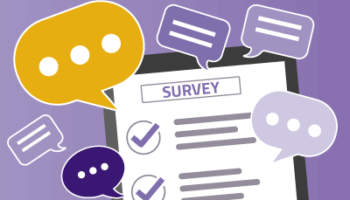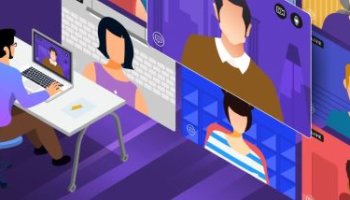Reasons to be a radiator
25/11/2021
Georgina Carr, Chief Executive, outlines her hopes for the new year:
Like many of us, I’ve found this year to be incredibly difficult. The impacts of the Covid-19 pandemic seem to be relentless. People, communities and services are incredibly resilient, but have been tested as never before.
At our AGM last week, our wonderful speaker, Caroline Clarke, Group Chief Executive of the Royal Free London NHS Foundation Trust, spoke about two types of people – ‘drains’ and ‘radiators’ – radiators are the people who put the life into the saying ‘smile and the world smiles with you’. Drains are cranky and irritable. It’s easy to be a drain. It can be much, much harder to be a radiator.
Despite this, I am heading into 2022 with reasons for us, the neurological community, to be more radiator.
Reason 1: We’re being listened to
Thanks to the work of the neurological community, policymakers are listening to us and services for neurological conditions are starting to be prioritised.
Both neurology and neurosurgery were prioritised by the national specialised commissioning team as part of NHS England and NHS Improvement elective care recovery, recognising that these services were at breaking point. This means that all Integrated Care Systems should have developed plans to restore and recover these services, and bring down waiting times.
Most recently, the Prime Minister has committed to the development of a Cross-Departmental strategy for Acquired Brain Injury and other neurological conditions. This simply wouldn’t have happened without the campaigning of Chris Bryant MP and Alliance member the United Kingdom Acquired Brain Injury Forum (UKABIF), who have lobbied tirelessly for this strategy to be put in place.
Reason 2: We will have new and improved evidence about the experiences of people with neurological conditions
Our national survey of people with neurological conditions, My Neuro Survey, is well underway, with more than 4000 people filling it out in the first four weeks of it being open. For the first time ever, the survey is UK wide, and we’ve expanded it to include children and young people with neurological conditions too. That means we’ll have even more evidence to show where access to care is working well and where it needs to improve.
Our member organisations have done a fantastic job of getting behind the survey, and we’re pleased to have 35 clinics taking part too. We’re going to be working with colleagues across the sector to derive as much insight as possible from the data, and working closely with people with neurological conditions to develop plans to launch the results. Crucially, we want to hear from them about what they think we ought to be calling on the UK Government and NHS leaders to be doing in response to the data.
Reason 3: We’re stronger than ever
Despite the impacts of the pandemic on the strategy and operations of so many of our members, more organisations than ever are joining us. As of the end of November 2021, 81 organisations are now part of the Alliance – the largest we have been for nearly a decade.
As part of our annual membership survey, member organisations told us they felt Alliance membership was value for money, and they think we are having an impact. Member organisations also told us they wanted us to focus on health inequalities, the health and care workforce and rehabilitation in our work – that is exactly what we will do, as we develop new and compelling evidence for change in each of these areas. There will be plenty of work to do together this coming year: launching the results of My Neuro Survey; calling for a comprehensive, funded strategy to improve services for all people with neurological conditions; and calling on Government to support the development of a robust and well-resourced neuroscience workforce fit for the future.
Thanks to your expertise and input, we are stronger than ever. With your backing, we will be louder than ever in calling for improvements to neuro services in 2022. Together we will be more effective than ever in achieving real change. Thank you.





